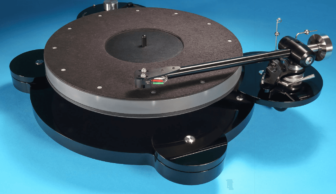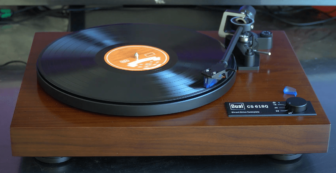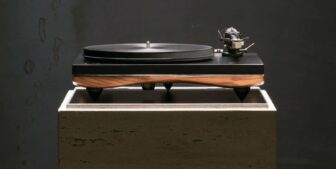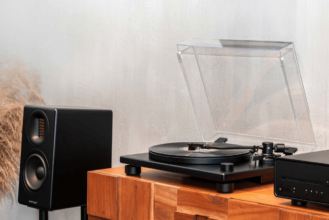Vertere MG-1 MkII Magic Groove Review: Groove is in the heart
Neville Roberts dips into Vertere’s range of four turntables to see just how magical the MG-1 Mkll Magic Groove really is. Read our Vertere MG-1 MkII Magic Groove Review.
Spanning a price range from just over £ for the entry-level DG-1 Dynamic Groove package to £ for the top-of-the-range RG-1 Reference Groove, Vertere has a vinyl spinner to suit even the deepest of pockets. The MG-1 Mkll Magic Groove is sold as a bundle that includes the SG-1 Super Groove tonearm, Tempo Precision motor drive, cables and Technomat turntable mat. Other upgrades and carts are also available. Read our Vertere MG-1 MkII Magic Groove Review.
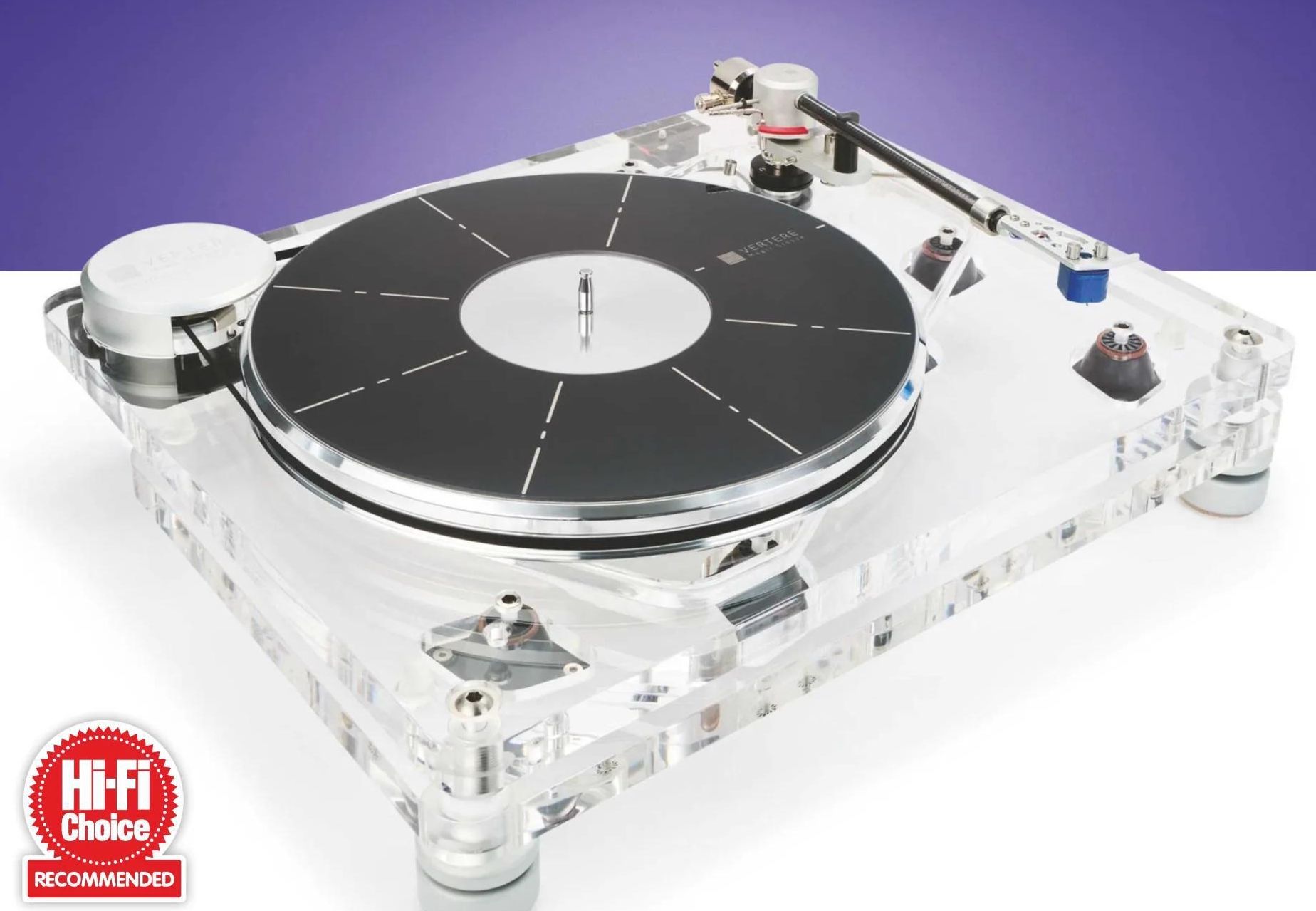
The MG-1 Mkll Magic Groove is designed to be maintenance and setup-free, and its plinth structure and isolation system is based on the considerably more pricey SG-1 Super Groove. Like the SG-1, this has a multi-layer acrylic plinth that uses carefully tuned rubber isolation mounts in both compression and tension to control and filter the flow of vibrations within the deck. The turntable and arm are fitted to a sub-plinth that sits on the rubber isolation mounts.
DETAILS
| PRODUCT | Vertere MG-1 Mkll Magic Groove ORIGIN UK |
| TYPE | Belt-drive turntable |
| WEIGHT | 14kg |
| DIMENSIONS (WxHxD) | 468 x155 x384mm |
| FEATURES | 33,45rpm SG-1 Super Groove tonearm Tempo Precision motor drive Technomat turntable mat |
| DISTRIBUTOR | Vertere |
| WEBSITE | vertereacoustics.com |
The platter is a one-piece aluminium alloy design based on the SG-1 platter and has a 3mm cast acrylic disc bonded to the top. Most of its mass is concentrated on the outside edge to maximise inertia without adding unnecessary weight, which in turn allows for an optimised main bearing design to be used. The centre spindle is removable in order to prevent any noise from the bearing being transmitted to the record while it is being played. The main bearing uses the same spindle and ball as the SG-1, with a phosphor bronze bearing housing.
The platter is rotated by a motor mounted on the main plinth. The body of the motor is free to spin within the constraints of an internal spring assembly, which mitigates any tendency to jerk the drive belt when starting up and helps with speed stability by ensuring constant tension.
Instrument focus is superb and the soundstage has great depth and width
Power comes from the small optional Challenger power supply plugged into the motor with a tethered cord. The Tempo drive is housed in a separate box with a button on the front to toggle the motor speed between 33 and 45rpm. A longer press on the button turns the motor off completely.
The SG-1 SGTA tonearm comes supplied and can also be upgraded with SGTA-HB internal wiring and titanium headshell if required. The SG-1 is Vertere’s take on a unipivot design (where the arm balances on a single point within the arm bearing), but here the point of the bearing sits between three precision silicon nitride balls rather than on a flat or dimpled surface in order to locate the point with more precision than a conventional unipivot.
For testing purposes, I fit Vertere’s top-of-the-range Mystic moving-coil cartridge (HFC 499). Installation is very straightforward and I align the Mystic using the supplied alignment protractor. Uniquely, the arm/cartridge resonance can be adjusted by changing the position of the counterbalance weight in conjunction with the position of a small weight that slides up and down the carbon fibre arm tube, thus changing the arm’s effective mass. Using this, together with a test record (Vinyl Essentials), I am able to set the resonance point to approximately 9Hz, which is ideal. I check the trackability using the test tracks on the record, and note that this is a very respectable 80 microns. However, at higher levels of the test tone, the cartridge starts to mistrack and this is indicated by a buzzing sound.
The bias adjustment (sometimes referred to as the anti-skating setting) exerts a small outward force on the tonearm to counteract the tendency of the arm to swing towards the centre of a record when playing. Using the tracking ability test on the test record, I easily set the bias counterweight by playing the track where the cartridge starts to mistrack and adjusting the counterweight so there is the same level of buzzing on both channels.
Sound quality
I have heard the SG-1 Super Groove turntable before and was extremely impressed by it and it also had a great review, so I expect great things from the MG-1. I am pleased to report that I’m not disappointed.
Starting off, I place a great LP of JS Bach’s Prelude and Fugue In D Major BWV 532 played by Peter Hurford on the platter (remembering to remove the centre spindle before playing, as recommended by Vertere) and I am blown away by the power of this commanding performance on the organ. I can feel the draught from my bass drivers if I put my face near a speaker. Powerful it may be, but it’s also extremely tight and well controlled.
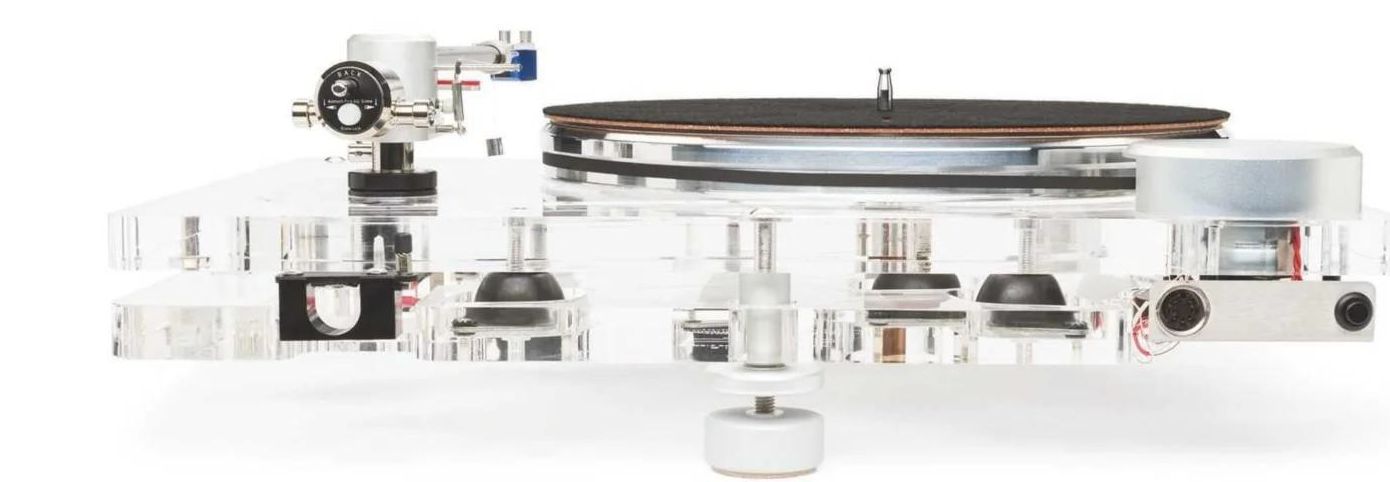
The MG-1 Mkll Magic Groove is designed to be maintenance and setup-free

The Challenger power supply has a button for speed selection
Furthermore, all the detail in the individual notes is clearly reproduced during the crescendos, which don’t degrade into an indistinct mush as can happen with lesser turntables, demonstrating how well the MG-1 controls the energy of the music.
I next listen to some female vocals on a direct-cut LP from Lyn Stanley -London With A Twist. This is an audiophile LP engineered at the Bernie Grundman Studios in Hollywood by Bernie Grundman himself, who prefers to cut his LPs at 45rpm to give the best
Its plinth structure and isolation system is based on the pricey SG-1 Super Groove
fidelity. When Stanley sings Blue Moon in her sultry jazz style, I am struck by all the detail of her vocals, which come over as effortless and smooth as well as very elegant and refined. The overall performance of Stanley and her backing group The Jazz Mavericks is extremely realistic. The instrument focus is superb and the soundstage has great depth and width, so the music does not appear to be emanating from my two speakers.
Next to rotate under the Mystic cartridge is another 45rpm jazz LP mastered at Bernie Grundman Studios for Yarlung Records: The Yuko Mabuchi Trio Volume 1. Green Dolphin Street has a lovely piano introduction before the double bass and drums join in and take me to the foot-tapping, swinging main melody The piano sparkles and sounds sophisticated and real while the bass fingering is also wonderfully clear and well controlled.
Slowing the turntable back down to 33rpm, I move on to Mozart’s Symphony No.41, Jupiter played by the London Philharmonic Orchestra. The excellent dynamic range of this LP is well captured by the MG-1 and the full orchestra comes over as freely exuberant and energetic. In the first movement, Allegro Vivace, the strings in the quieter sections are delightfully intricate and contrast brilliantly with the livelier parts.
I finish off in a quieter vein with a superb recording of Rodrigo’s Concierto De Aranjuez with the English Chamber Orchestra featuring John Williams on guitar. The well-known second movement reveals itself to be both delicate and enchanting, while Williams’ playing is intimate and detailed, showing that the MG-1 can certainly whisper when required.
Conclusion
I’m seriously impressed with the MG-1. This turntable brings vinyl closer to master tapes in terms of overall detail, control and dynamics. Even with a price tag that ventures into five figures, it represents excellent value for a record deck of this quality When partnered with a suitable high-end cartridge, the MG-1 brings out the very best from your record collection and that, coupled with its stunning looks, makes it deserving of taking centre stage in your audio setup •
OUR VERDICT
HOW IT COMPARES
The MG-1 Mkll is in a similar price bracket to the flagship Linn Klimax LP12 package if you exclude the Linn Urika Internal MC phono stage and Kandid Reference MC cartridge. The Linn has an external power supply and DC motor unit and includes the Ekos SE reference tonearm with its machined titanium arm tube. The Linn has the more traditional ‘LP12’look of a wooden plinth with a one-piece solid aluminium subchassis, while the MG-1 has an acrylic plinth and sub-plinth assembly. Try and hearthe pair side by side if you can.
Vertere MG1 mk2 turntable
setup and sound test of Vertere MG1 mk2 turntable (with Super Groove PTA arm and Mystic cart) . Associated equipments are ...
Best High End Turntable 2022 - Vertere MG 1 MkII
In our round up of the best Hi-Fi products of 2022, Ed tells us why the Vertere MG 1 MkII is the Best High End Turntable we have ...



